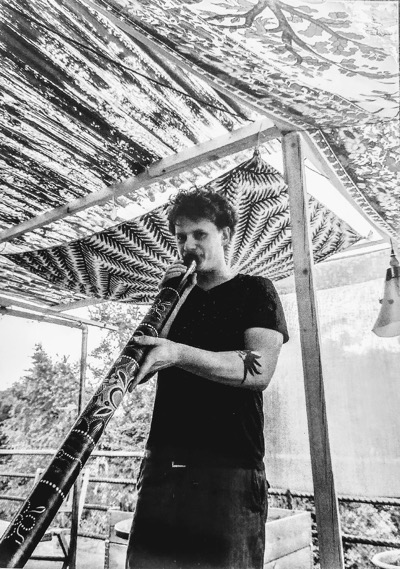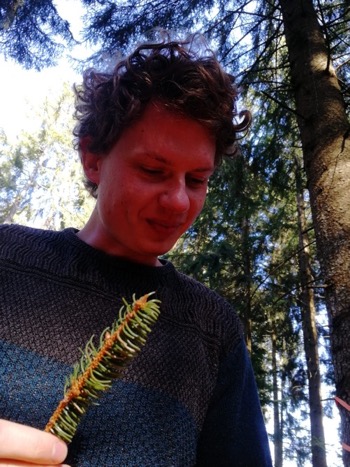Playing Didgeridoo
, , 1900
Happiness is playing the didgeridoo.
, , 1900
Happiness is playing the didgeridoo.
, , 1900
One trip through a forest can make you understand more about the nature of reality than 100s of hours of ‘doing’ science
, , 1900
Happiness is playing the didgeridoo 
, , 1900
One trip through a forest can make you understand more about the nature of reality than 100s of hours of ‘doing’ science 
Happiness is playing the didgeridoo 
One trip through a forest can make you understand more about the nature of reality than 100s of hours of ‘doing’ science 
Short description of portfolio item number 1
Short description of portfolio item number 2 
Published in Journal of Virology, 2016
The production and purification of diverse soluble Env trimers that maintain native-like (NL) structure present technical chal- lenges that must be overcome in order to advance vaccine development and provide reagents for HIV research. Low levels of NL trimer expression amid heterogeneous Env conformers, even with the addition of stabilizing mutations, have presented a major challenge. In addition, it has been difficult to separate the NL trimers from these heterogeneous mixtures. While MAbs with specificity for quaternary NL trimer epitopes have provided one approach to purifying the desirable species, such methods are dependent on the Env displaying the proper epitope. In addition, MAb affinity chromatography can be expensive, the necessary MAb may be in limited supply, and large-scale purification may not be feasible. Our method based on biochemical separation techniques offers an epitope-independent approach to purification of NL trimers with general application to diverse Envs.
Recommended citation: Verkerke, Hans. (2016). "Epitope-Independent Purification of Native-Like Envelope Trimers from Diverse HIV-1 Isolates " Journal of Virology. 6(1). https://jvi.asm.org/content/90/20/9471
Published in Novartis NIBR internal publications, 2019
This study explored multimodal deep learning applications for medical images and text, in particular, automatic report generation from chest X-ray images, used daily in hospitals diagnose chest diseases. Reading the images and writing reports requires considerable training and time-investment. We speculate that to match the physician-level disease understanding, the representations learned in unsupervised manner for images and text should be jointly embedded into the same vector space. As such, we could perform cross modal retrieval, i. e., ask the model to generate a paragraph with Findings and Impressions sections for a given image.
Recommended citation: Filipavicius, Modestas et al., (2019). "Medical Report Generation from Jointly Learned Medical Image and Text Representations." NIBR Publications . 12(2). http://mfilipav.github.io/files/2019cxr.pdf
Published in arXiv, 2020
With the fast development of COVID-19 into a global pandemic, scientists around the globe are desperately searching for effective antiviral therapeutic agents. Bridging systems biology and drug discovery, we propose a deep learning framework for conditional de novo design of antiviral candidate drugs tailored against given protein targets. First, we train a multimodal ligand–protein binding affinity model on predicting affinities of antiviral compounds to target proteins and couple this model with pharmacological toxicity predictors. Exploiting this multi-objective as a reward function of a conditional molecular generator (consisting of two VAEs), we showcase a framework that navigates the chemical space toward regions with more antiviral molecules. Specifically, we explore a challenging setting of generating ligands against unseen protein targets by performing a leave-one-out-cross-validation on 41 SARS-CoV-2-related target proteins. Using deep RL, it is demonstrated that in 35 out of 41 cases, the generation is biased towards sampling more binding ligands, with an average increase of 83% comparing to an unbiased VAE.
Recommended citation: Born, Jannis et al., (2020). "PaccMannRL on SARS-CoV-2: Designing antiviral candidates with conditional generative models." arXiv2005(13285) https://arxiv.org/abs/2005.13285